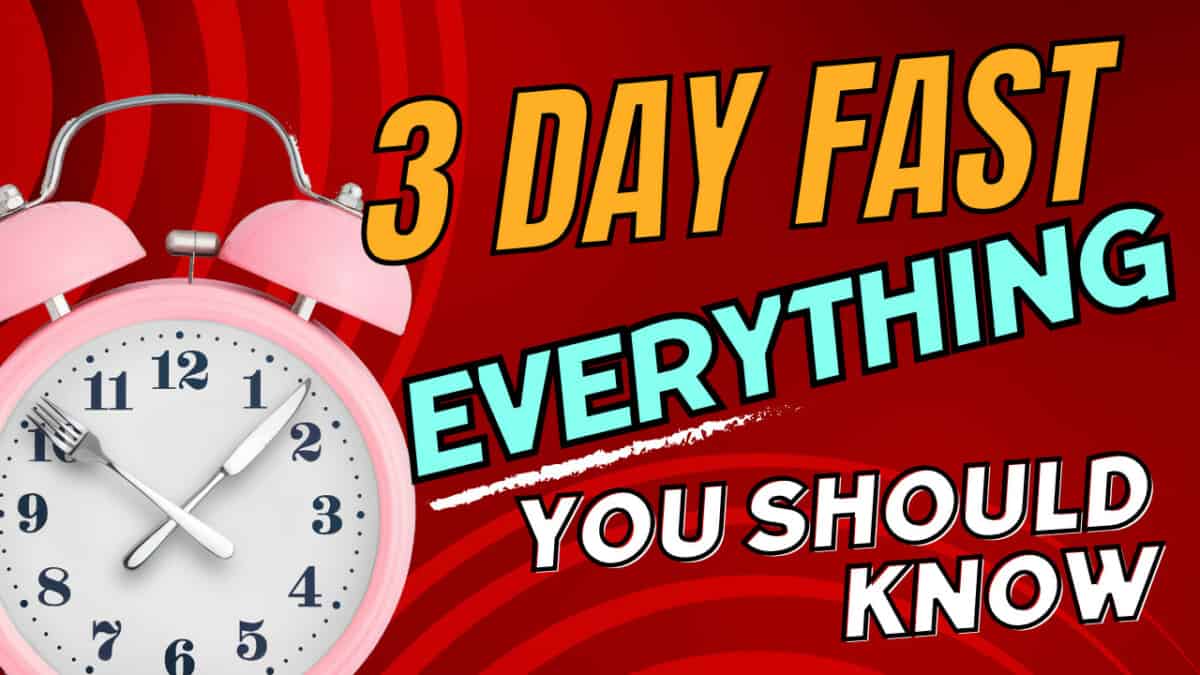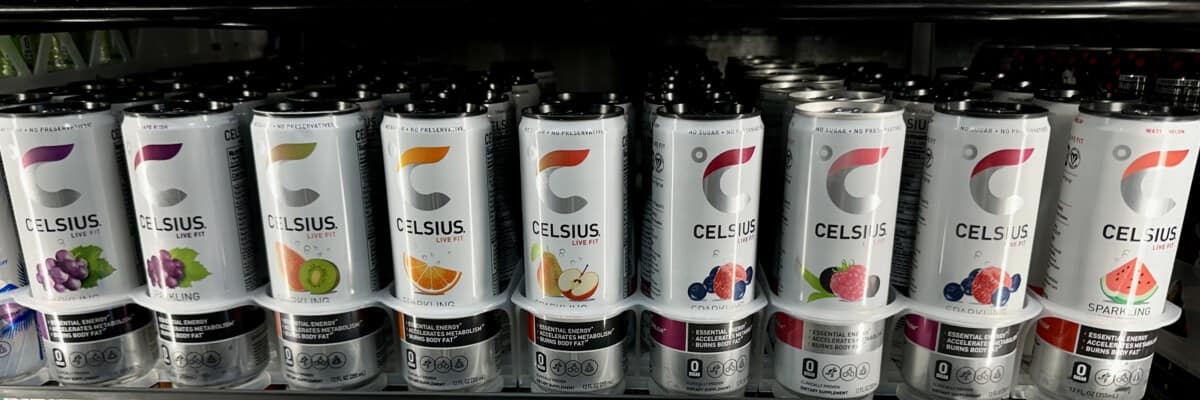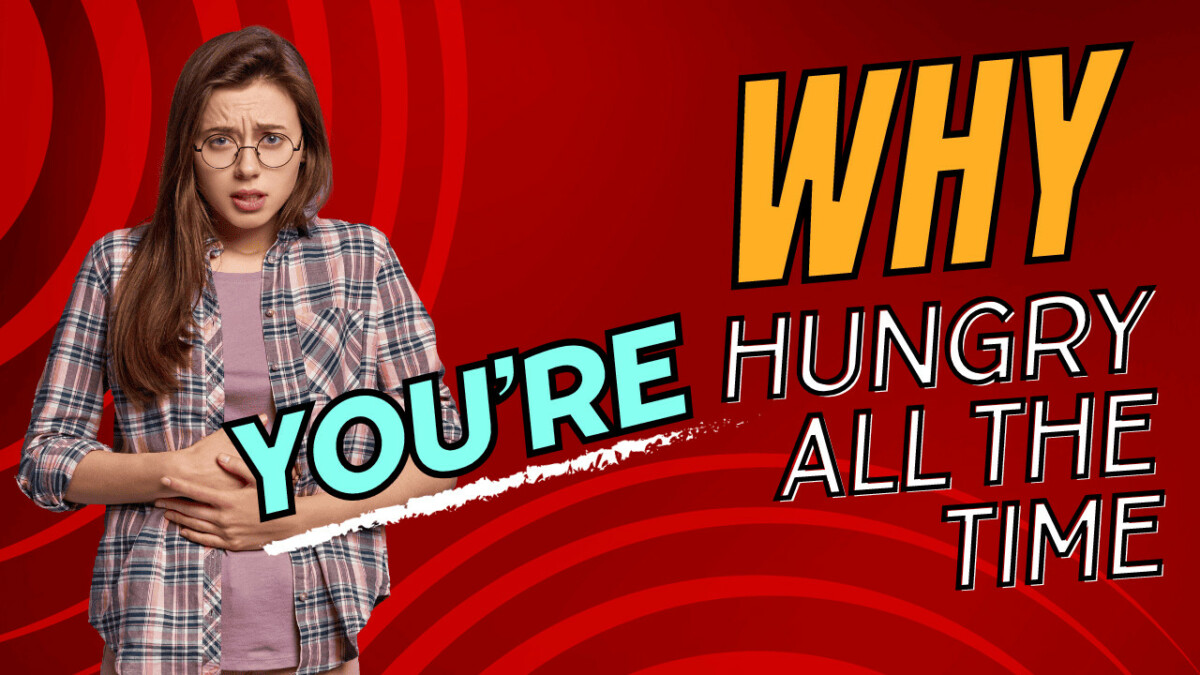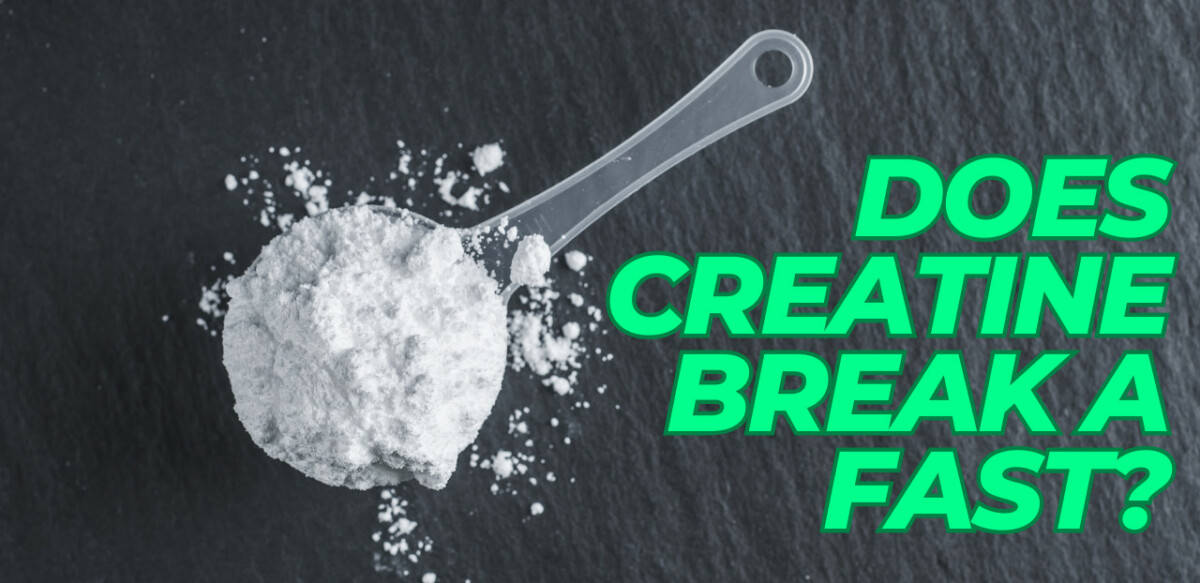If you’re feeling intermittent fasting fatigue and want to stop being tired all the time, then you’ll want to keep reading. Feeling weak, dizzy, and tired are all common symptoms of intermittent fasting fatigue that can thankfully be improved.
Intermittent fasting is one of the most effective diets for weight loss, and its other health benefits like improving insulin levels and reducing inflammation. However, when you change your eating habits, it can lead to short-term side effects like fatigue.
You may have been expecting a surge of energy with your new intermittent fasting routine, but instead you’ve been feeling weak, sluggish, and fatigued. You may even be wondering if feeling this lethargic is normal.
Thankfully, there are some simple and science-backed ways to counter this intermittent fasting fatigue. Here you’ll discover how to feel more energetic while staying on your intermittent fasting regimen so you can get more results while feeling invigorated.
Does Intermittent Fasting Cause Fatigue

If you’re feeling tired while intermittent fasting, then keep in mind this can actually be normal. It’s one of the reasons I first stopped intermittent fasting. You’ll feel more tired than normal as your body adapts to using fat stores for fuel instead of quick-burning sugars and carbs.1
But if you continue to feel tired all the time, then this definitely isn’t normal with intermittent fasting. As you continue to practice intermittent fasting, it should boost and increase your energy levels instead of depleting them.2
Intermittent fasting doesn’t wreck your metabolism but should increase it, giving you more energy and allowing your body to burn fat stores more efficiently. If you’re not losing weight on fasting, that’s definitely a problem that must be solved.
You should see at least some of the benefits of intermittent fasting within the first week. After seven days of intermittent fasting, you should’ve lost at least a few pounds as your body starts burning more fat for fuel.
Intermittent fasting should still work for weight loss, even without exercising.3 Calorie restriction is one of the benefits of time-restricted eating and should force weight loss.4
But let’s look into some side effects of why you may feel tired while intermittent fasting and lack energy…
1. Not Yet Fat Adapted
Your body is designed to burn primarily fat for fuel, not sugar. Most consume a high amount of sugar, starch, and high-glycemic carbohydrates in their diet. This causes the body to become more dependent on sugar and carbs for fuel instead of body fat burning.
But as you switch over to an intermittent fasting diet, your body will start to switch over to burning fat stores for ketogenic energy. This metabolic switch to becoming more “fat-adapted” can take some time.5
“Sugar burners” primarily use glucose (from sugar and carbs) for energy. As you start intermittent fasting, your body is forced to look for other energy sources, aka your fat stores. But when you eat too many of these sugars, your body stores them as fat unless you’re burning them off immediately.
Becoming more fat-adapted doesn’t happen overnight and can take some weeks of intermittent fasting along with following a low-carb diet the rest of the time. Gradually, your body will become more efficient at breaking down fat stores into ketones for ketogenic energy.
If your fasting blood sugar is over 100, then you’re a “sugar burner.” Your body could be insulin resistant, and other hormones could be negatively impacted. The goal of fasting is to switch from being a sugar burner to a fat burner.
2. Low Blood Sugar
If you’ve been feeling tired, lethargic, dizzy, lightheaded, irritable, or even nauseous following your intermittent fasting regimen, it could be caused by low blood sugar aka low blood glucose.6
You just learned how being a “sugar burner” can cause you to feel these symptoms since your body relies on those quick-burning sugars for fuel. With time-restricted eating, you won’t be eating for quite some hours, which can cause your blood glucose levels to drop.
As you fast, your body will first use stored glucose in your liver for energy.7 But the longer you fast, these stores will run out, causing your blood glucose levels to drop since you haven’t eaten anything else.
It can take time for your body to adjust to becoming more fat-adapted and using body fat for fuel instead of sugar. This is why it’s a good idea to slowly ramp up your intermittent fasting window instead of doing very long intermittent fasting periods starting off.
Having low blood glucose when fasting can make your fasting windows miserable. This is why it’s good to have MCTs like those in Keto Elevate during your fasting window. They won’t break your fast; they’ll boost your energy and help to flip the “metabolic switch” so you burn more fat for fuel.
Support Many of the Keto Benefits Associated With Increased Ketones, & Support Them FAST, but Without the Difficulty of Doing Keto...
Increase Ketone Levels Inside Your Body to Boost Metabolism, Elevate Energy & Enhance Mental Focus
- 3X Better Than Coconut Oil, Butter or MCTs
- Heightened energy levels
- Reduced cravings & appetite
- Graceful aging
- Healthy metabolism
- Increased mental clarity & focus
- Heightened physical performance and recovery
3. Your Body Is Detoxing
Your body will be detoxing as it makes this “metabolic shift.” Detoxing is when your body starts removing toxins and harmful substances from the body. While your body has its own detoxification system (liver, kidney, skin), intermittent fasting can enhance and support this process.
Autophagy is when your body starts to break down old damaged cells and other toxins during your fasting period. It’s your body’s way of clearing old, damaged cells to create newer, healthier ones.8 Your body is detoxifying at a cellular level.
Fasting also improves gut health, which is vital in removing waste from your body.9 Reduced inflammation is also a benefit of fasting as it causes a reduction in inflammatory markers like C-reactive protein (CRP), TNF-alpha, and IL-6.10
These processes can initially take up some energy levels as your body starts healing. You may feel more tired and lethargic than usual, starting with fasting since your body is detoxifying.
Intermittent Fasting and Adrenal Fatigue

Is intermittent fasting good or bad for adrenal fatigue?
Adrenal fatigue is caused by chronic stress that overworks and taxes your adrenal glands. Your body can become less capable of producing hormones like cortisol resulting in chronic fatigue and tiredness.
Intermittent fasting can benefit those with adrenal fatigue since it will improve their metabolic health. Your inflammation will go down with fasting making it easier for your body to recover from stresses.
Sleep quality can also improve with fasting by calibrating your circadian rhythm.11 This allows the body proper quality rest and recovery.
But fasting can also stress the body, especially in the beginning stages as your body adjusts.12 This could lead to higher cortisol production, further complicating adrenal fatigue. Also, if your body is a “sugar burner,” fasting could cause low blood glucose levels, worsening adrenal fatigue.
This is why it’s a good idea to slowly progress with your fasting windows and not go too long in the beginning. It takes time for your body to make the “metabolic switch,” which could cause further stress during this adjustment period.
If your adrenal fatigue is bad, then it’s a good idea to wait until your symptoms improve before starting intermittent fasting. Fasting should help improve adrenal fatigue in the long run. But there is an adjustment period that could be a stressor too.
Fatigue After Eating with Intermittent Fasting

If you always feel like you’re super tired after breaking your fast, then you’re not the only one. Most break their fast in the afternoon and at lunchtime, which can cause the dreaded “afternoon crash.”
Feeling fatigued after breaking your fast is pretty common with those practicing intermittent fasting. With fasting, your body can become more sensitive to that first meal you break your fast with.
Breaking your fast with the right foods and meals will have a big impact on avoiding the “afternoon slump.” Make sure your first meal that breaks your fast is lighter and doesn’t contain sugars or lots of carbs.
Sugars and carbs after fasting can cause your body to quickly elevate blood sugar levels, then spike insulin, and result in your blood sugar levels crashing back down, causing fatigue. A ketogenic diet can be very effective when combined with intermittent fasting.
So avoid these foods when breaking your fast:
- sugars
- starches
- refined grains
- processed carbs
It’s best to have a lighter lunch to break your fast, and then you can have a bigger one an hour or two later. Having a bigger meal (even if low carb or low sugar) can cause blood to divert to your stomach and intestines for digestion. This can cause lightheadedness and feeling fatigued.
How to Prevent Fatigue When Intermittent Fasting

You can make a few key changes to increase your energy while intermittent fasting. To keep your energy levels high during fasting, you will want to do the following…
1. Stay Hydrated
It’ll be challenging to stay feeling energized if your body is dehydrated. Studies have found that even being slightly dehydrated can increase sleepiness and fatigue.12
When fasting, it’s best to drink a lot of water to stay hydrated and prevent hunger. Often, your body can confuse hunger for thirst, making it harder to curb hunger pangs.13
A general rule of thumb is to drink at least half your body weight (pounds) in fluid ounces daily. If you weigh 160 pounds, you should get at least 80 ounces of water. There are about 8 ounces in an average glass of water, so you’d have to drink 10 daily.
2. Ease Your Way Into It
If your body isn’t used to long hours without food, slowly ramp up your fasting window. Starting off on the low end with 12 hours will make it easier for your body to adjust.
It can take time for your body to make the “metabolic switch” to burning fat stores instead of relying on incoming sugars and carbs for fuel. Since your body isn’t used to fasting, your blood sugar could drop, causing you to feel fatigued.
Easing your way into fasting by adding an extra hour every 1-2 weeks until you reach your 16+ hours of fasting goal can help. By converting them into ketones, your body will gradually become more efficient at utilizing fat stores for energy.
As your body becomes more “fat-adapted,” it’ll be easier to go more extended periods without eating. Your body will become much more metabolically flexible and burn fat stores much easier. This will make you feel more energized even without eating.
3. Best Foods to Break Your Fast
When breaking your fast, eating a lighter meal that’s low in carbs, sugars, and starches is a good idea. After breaking your fast, the first meal can easily cause a spike in blood sugar and insulin. Then you’ll come crashing down soon after, causing the “afternoon slump.”
Instead, eating some lean protein like chicken, fish, or eggs won’t cause much of an increase in blood sugar. Fiber-rich foods like leafy greens like spinach and low-starch veggies like broccoli are also good choices.
If you’re still hungry, having a small snack of nuts, nut butter, or seeds are good choices. You can also eat another meal about an hour or so later, which will help keep your energy levels up without much of a crash afterward.
4. Avoid Inflammatory Foods
Foods that cause inflammation in your body should be avoided if you want to have high energy levels. Many processed, refined, and sugary foods cause inflammation and energy spikes and crashes.14
Chronic inflammation can develop over time eating these bad foods, which could contribute to fatigue. With fasting, it’s also essential to consider the foods you’re eating during the feeding window too if you want to maximize your results and have higher energy.
Some examples of these inflammatory foods to avoid are:
- Processed foods
- Sugary drinks
- Refined carbohydrates
- Vegetable and seed oils
- Alcohol
- Trans Fats
- Fried Foods
- Artificial sweeteners, additives, and fillers
5. Get Enough Quality Sleep
It doesn’t take a rocket scientist to know that not getting enough sleep will cause you to feel tired. So improving your sleep quality will play a key role in having high energy levels and preventing intermittent fasting fatigue.
Your sleep quality should improve with fasting since it’ll help to reset and calibrate your circadian rhythm. Our bodies aren’t designed to be eating too late at night.15 So by starting your fasting window after dinner, you’ll be training your body to sleep.
By not eating late at night, you’ll also sleep better if your body doesn’t have to digest and process foods. But it’s normal for many to have an energy dip in the afternoon due to your body’s natural circadian rhythm.
Making time for an afternoon nap can really boost your energy levels. Naps can be a “miracle drug” and “secret weapon” for reducing stress and fatigue while enhancing energy, alertness, and creativity. Use this Nap Wheel to find your ideal afternoon napping window.
6. Use Fasting Drinks
If you’re having difficulty feeling fatigued when fasting, try adding in some “fasting drinks.” These are zero or near-zero-calorie beverages that won’t break your fast but can boost energy and enhance your results.
Coffee is the most basic and essential fasting drink for increasing your energy levels and alertness. Coffee will only break your fast if you’re following a strict water fast. If you’re following a dirty fast that allows a “50-calorie buffer,” you can add a small dollop of cream.
Unsweetened teas are another great option, especially if you don’t like drinking coffee. Many teas like green tea, yerba mate, and black tea contain caffeine that can help increase your energy levels. Teas also contain health-beneficial polyphenols and antioxidants to reduce inflammation and slow aging.16
Electrolyte imbalance could also contribute to feeling tired.17 Very long fasting periods or alternate day fasting should be supplemented with electrolytes. Electrolyte deficiency can cause dehydration, reduced energy production, and reduced muscle and nerve function.
Adding C8-MCTs to your coffee, tea, or water in the morning during your fasting window can help trigger the “metabolic switch” to burn fat stores for fuel. C8-MCTs are quickly and efficiently converted into ketones by your liver and won’t break your fast.
Support Many of the Keto Benefits Associated With Increased Ketones, & Support Them FAST, but Without the Difficulty of Doing Keto...
Increase Ketone Levels Inside Your Body to Boost Metabolism, Elevate Energy & Enhance Mental Focus
- 3X Better Than Coconut Oil, Butter or MCTs
- Heightened energy levels
- Reduced cravings & appetite
- Graceful aging
- Healthy metabolism
- Increased mental clarity & focus
- Heightened physical performance and recovery
Conclusion
The bottom line you’re feeling intermittent fasting fatigue is from not yet being fat-adapted, and your body is still relying on sugars and carbs for fuel. It can take some time for your body to adjust to being fat adapted, so it’s best to slowly ramp up your fasting window length.
Low blood sugar or blood pressure during fasting can make you tired, dizzy, and lightheaded. This is also a result of your body not yet making the “metabolic switch.” Adding some fasting drinks like coffee, water, and teas mixed with C8-MCTs can help keep your energy levels up while fasting while boosting your results.
If you feel tired after eating when fasting, then you’re probably eating too big of a meal. Eat a lighter meal containing lean protein, low-starch veggies, and healthy fats. Avoid sugar, refined carbs, starch, and processed foods when breaking your fast to maximize your energy levels.
Those with eating disorders should talk to their doctor or therapist before starting an intermittent fasting diet. Periodic fasting could trigger a relapse with eating disorders since it practices restriction.18
Intermittent fasting fatigue can be a normal part of adjusting to a time-restricted eating schedule. It’s best to work your way up slowly and gradually to reach your fasting window goal. With these tips and methods, you should be able to successfully stay energized while intermittent fasting.
Josh holds a Bachelor’s degree in Exercise Physiology and Nutrition Science. He’s a Certified Strength and Conditioning Specialist (CSCS) by the National Strength and Conditioning Association and he’s a Certified Personal Trainer (CPT) by American Council on Exercise. He’s worked as a Strength and Conditioning Coach at the high school and college levels. He has over 15 years of experience as a personal trainer and nutrition coach. He strives to bring inspiration and results for people to live healthier lives through smart diet and exercise.










